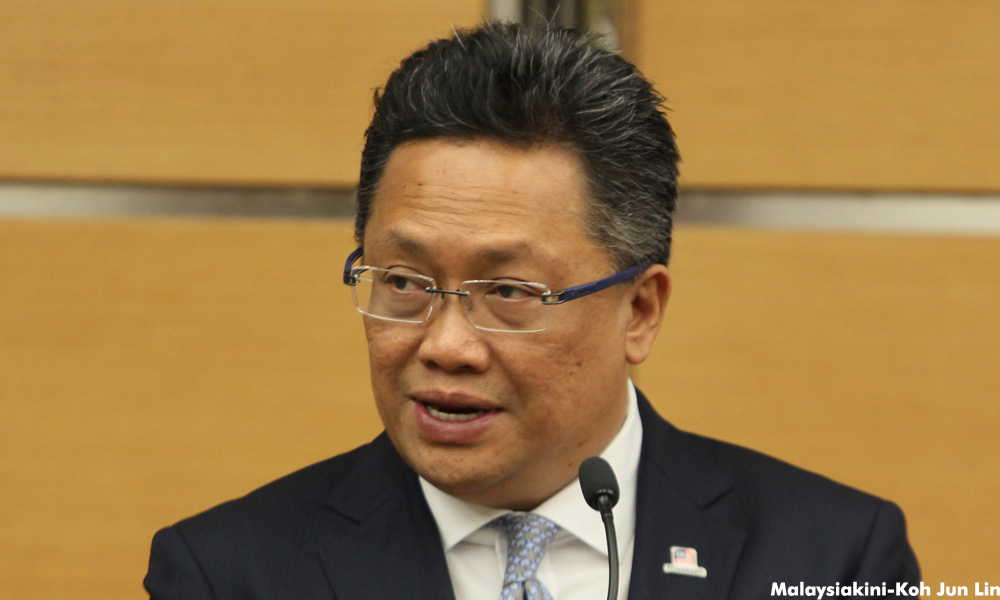
The government is making a big mistake by cancelling the Kuala Lumpur-Singapore High-Speed Rail (HSR) project.
The HSR is a strategic project between the governments of Malaysia and Singapore that aims to improve their economies and elevate the quality of life of both countries through seamless travel between the two capital cities, enhance business linkages, and connect the peoples of both countries closer together.
With terminus stations in Kuala Lumpur's Bandar Malaysia and Singapore's Jurong East, the HSR link is expected to cut the travel time between the two cities to 90 minutes.
The Singapore-Kuala Lumpur air route is the busiest international route in the world. There were 30,537 flights between both cities in 2017 putting Hong Kong-Taipei firmly into second place at 28,887 flights.
With such large yearly passenger numbers, there would have been a strong case for the financial viability of the project.
Beyond just passenger traffic numbers, the real benefit of a major infrastructure project such as this lies beyond providing the convenience of getting from A to B.
This project has the potential to stimulate economic development along the rail corridors and urban development around the stations/rail terminus or better known as transit-oriented development (TOD).
The many stations in between, namely Putrajaya, Seremban, Melaka, Muar, Batu Pahat, and Iskandar Puteri which are relatively less developed than Kuala Lumpur or Singapore would stand to gain from development.
It is forecasted the result of HSR would be no less than the economic multipliers that happened to the Taiwan HSR between Taipei and Kaohsiung, and the Tokaido Shinkansen between Tokyo and Osaka.
As such, it is too simplistic for Prime Minister Dr Mahathir Mohamad to say that the project won’t be beneficial because it’s going to cost our country a huge sum of money and it will make no money at all from the operation as any potential returns from land value capture would pay for the railway project in the long run.
On the macro point-of-view, it is estimated that Malaysia will lose an estimated RM209 billion in gross national income (GNI) contribution and lose the potential to create 70,000 jobs if the Kuala Lumpur-Singapore High-Speed Rail is called off.
After the HSR is in operation, a study by the research body Institute of Developing Economies, Japan External Trade Organisation (IDE-JETRO) found that the HSR would have delivered a US$1 billion (RM4 billion) economic gain to Malaysia every year.
The abandonment of HSR would also mean that the value of 1MDB's Bandar Malaysia project which was to be the terminus station of the HSR would be substantially decreased - diminishing the ability of 1MDB to repay its debt.
The current Harapan government now says the RM110 billion cost of the HSR is the main reason why this project must be cancelled. How did the figure of RM110 billion cost of the HSR come about?
This differs greatly from the range of RM50 billion to RM70 billion cost that the governments of Singapore and Malaysia had budgeted earlier this year.
Did the Harapan government take into the net economic benefits and spill-over effects beyond the cost of the HSR project when arriving at this hasty decision to cancel?
With the cancellation of this mega-project it would have far-reaching consequences for Malaysia than just the lowering of our GDP growth potential. It will also disappoint foreign investors who see the project as a catalyst for a more rapid pace of growth.
The government should not be short-sighted in making an important decision such as this. It is obviously clear that the spill-over benefits are so huge that it will be a wasted opportunity if we don’t proceed with the project now.
Should this project be restarted in future years, the cost would only increase and the debt burden will increase manifold, which is totally against the Harapan government’s plan to reduce the national debt.
ABDUL RAHMAN DAHLAN is a former minister in the Prime Minister's Department. -Mkini



No comments:
Post a Comment
Note: Only a member of this blog may post a comment.